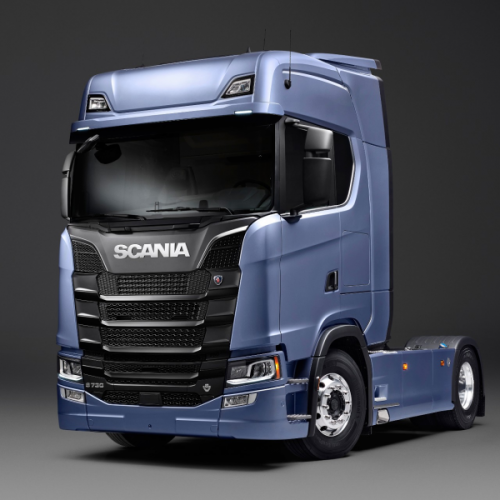Scania wird zur bevorstehenden IAA Nutzfahrzeuge in Hannover einen Plug-in-Hybrid-Truck präsentieren, der auf Scanias neuer Lkw-Generation basiert und einen Fünfzylindermotor mit einem 130 kW starken E-Motor und einem 7,4-kWh-Akku kombiniert. Anwendungsfälle sind vor allem Verteilerverkehr und Baustellenbetrieb. Zehn Kilometer sollen rein elektrisch gefahren werden können.
Technology
Leichtbaukarosserie für das "Next Generation Car"
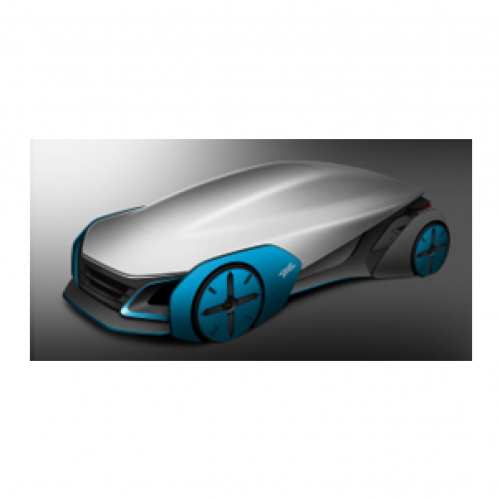
DLR-Forscher haben im Zug des Großprojekts Next Generation Car (NGC) ein neuartiges Konzept für Kleinfahrzeuge entwickelt. Das Safe Light Regional Vehicle (SLRV) zeichnet sich durch eine sehr leichte und gleichzeitig besonders sichere Karosserie in Sandwich-Bauweise aus. Mit einer Reichweite von rund 400 Kilometern basierend auf einem kompakten elektrischen Antriebsstrang, der von einer Brennstoffzelle mit Energie versorgt wird, soll das SLRV vorwiegend als Pendler- und Zubringer-Auto dienen. Mit Hilfe von Crash-Versuchen testen die DLR-Wissenschaftler die von ihnen entwickelte Leichtbaukarosserie in der Praxis.
12th International Colloquium Fuels – Call for Paper
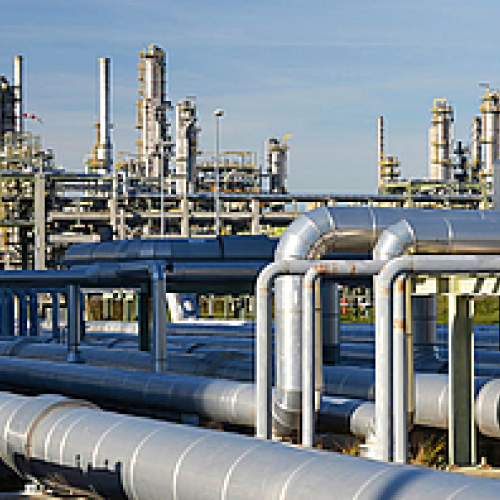
The international colloquium aims to contribute to the development into a more sustainable mobility by the exchange and the discussion of all aspects connected with the system “engine/fuel/environment”.
Call for Papers: submission of abstracts is possible until 15. November 2018. Information is available in the information flyer (Link to pdf).
U.S. DoE: Energy efficiency of conventional cars
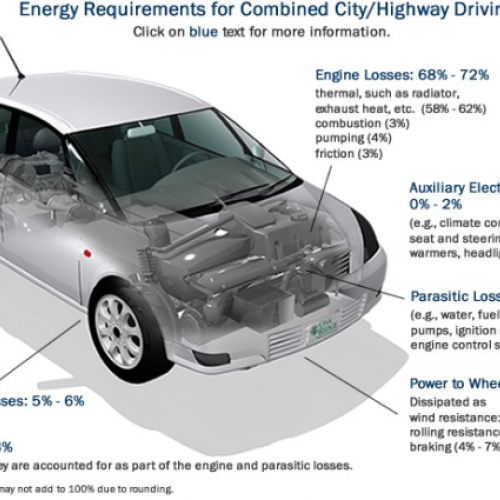
Conventional cars manage better fuel economy every year. According to the latest U.S. Department of Energy "Fact of the Week," though, their efficiency ranges from a-little-better-than-before to still-abysmal. This week, the DOE noted that of all the energy splashed into a conventional car's gas tank, only 12 to 30 percent actually goes to move the car down the road. Everything else is lost to engine inefficiencies, heat, or used to power accessories, the DOE says.
BP nutzt „grünen Wasserstoff“ zur Kraftstoffherstellung

BP nutzt in einer Raffinerie in einer Pilotphase für 30 Tage regenerativen „grünen Wasserstoff“ zur Kraftstoffproduktion. In einem dreißigtägigen Demonstrationsprojekt zeigen die Ingenieure der BP Lingen aus dem Emsland, dass der Einsatz erneuerbarer Komponenten in einer Erdölraffinerie möglich ist. Der „grüne Wasserstoff“ wird von der Audi Industriegas GmbH in Werlte mit Hilfe der Power to Gas-Technologie unter ausschließlicher Nutzung von erneuerbaren Energien hergestellt.
AppScooter: Electric Scooter from Etergo
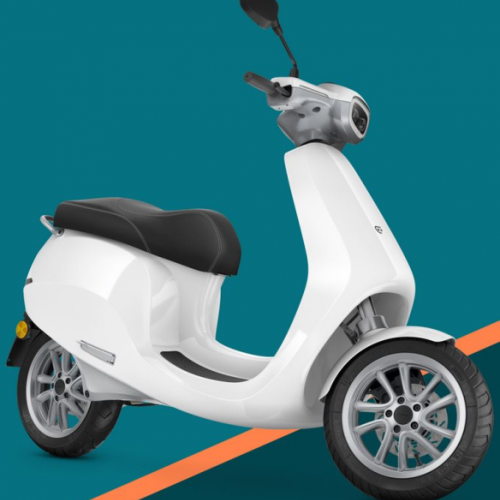
The startup company Etergo launched their AppScooter at EUR 3,399.--, pre-orders are accepted, delivery will start in 2019. The AppScooter features 80 to 240 km range with up to three modular lithium ion battery packs, each pack weighs only 7.5 kg and is easily removable (e.g. for charging at home) and supports 600 charging cycles.
H2-fuel cell ferry will show zero-emissions are achievable

The California Air Resources Board (CARB) in the US has awarded a grant to Golden Gate Zero Emission Marine (GGZEM) to build the first US hydrogen fuel cell ferry named ‘Water-Go-Round’. The 70ft-long aluminium catamaran is powered by a pair of 300kW electric motors and 360kW of PEM fuel cells and Li-ion battery packs. It will be designed to cruise at a maximum speed of 22k.
Alstom’s hydrogen train: approval for commercial operation in Germany
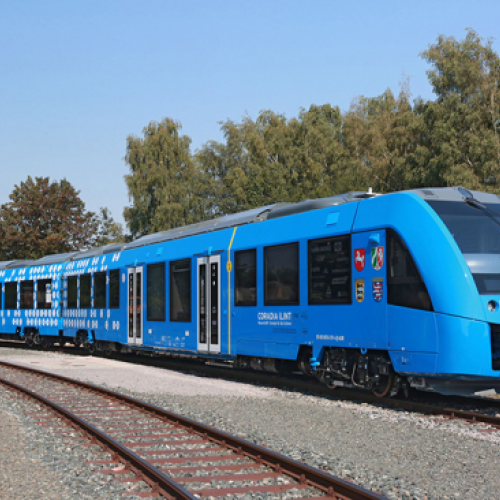
Alstom’s Coradia iLint hydrogen fuel cell passenger train, has been granted approval by the German Railway Office (EBA) for passenger service in Germany. Coradia iLint is based on the diesel train Coradia Lint 54 and is powered by an electrical traction drive, an on-board fuel cell and Li-ion batteries. The iLint can run at 140 km/h with a 600 to 800 km/tankful autonomy and accommodates up to 300 passengers.
DLR fuel cell power pack for cargo bikes

The DLR (Deutsches Zentrum für Luft- und Raumfahrt) has developed an innovative fuel cell module that extends the range of electric cargo bikes and doubles the service life at a comparable price to purely battery-operated systems. The Fuel Cell Power Pack combines a fuel cell (continuous output of 300 to 500 watts) with a small lithium-ion battery which is activated in peak load periods.
Audi und Huawei arbeiten zusammen an vernetzten Autos
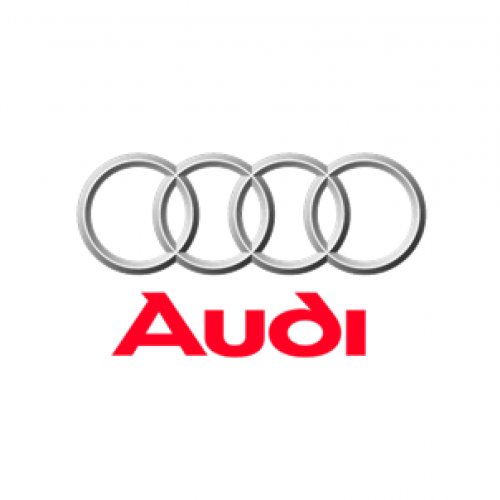
Audi und Huawei wollen in Zukunft bei der Entwicklung vernetzter Fahrzeuge kooperieren. Der Ingolstädter Autobauer und der chinesische Technologiekonzern haben eine entsprechende Absichtserklärung unterzeichnet. Die Kooperation hat zudem die Beschleunigung der Digitalisierung von Diensten im Fahrzeugumfeld zum Ziel.
